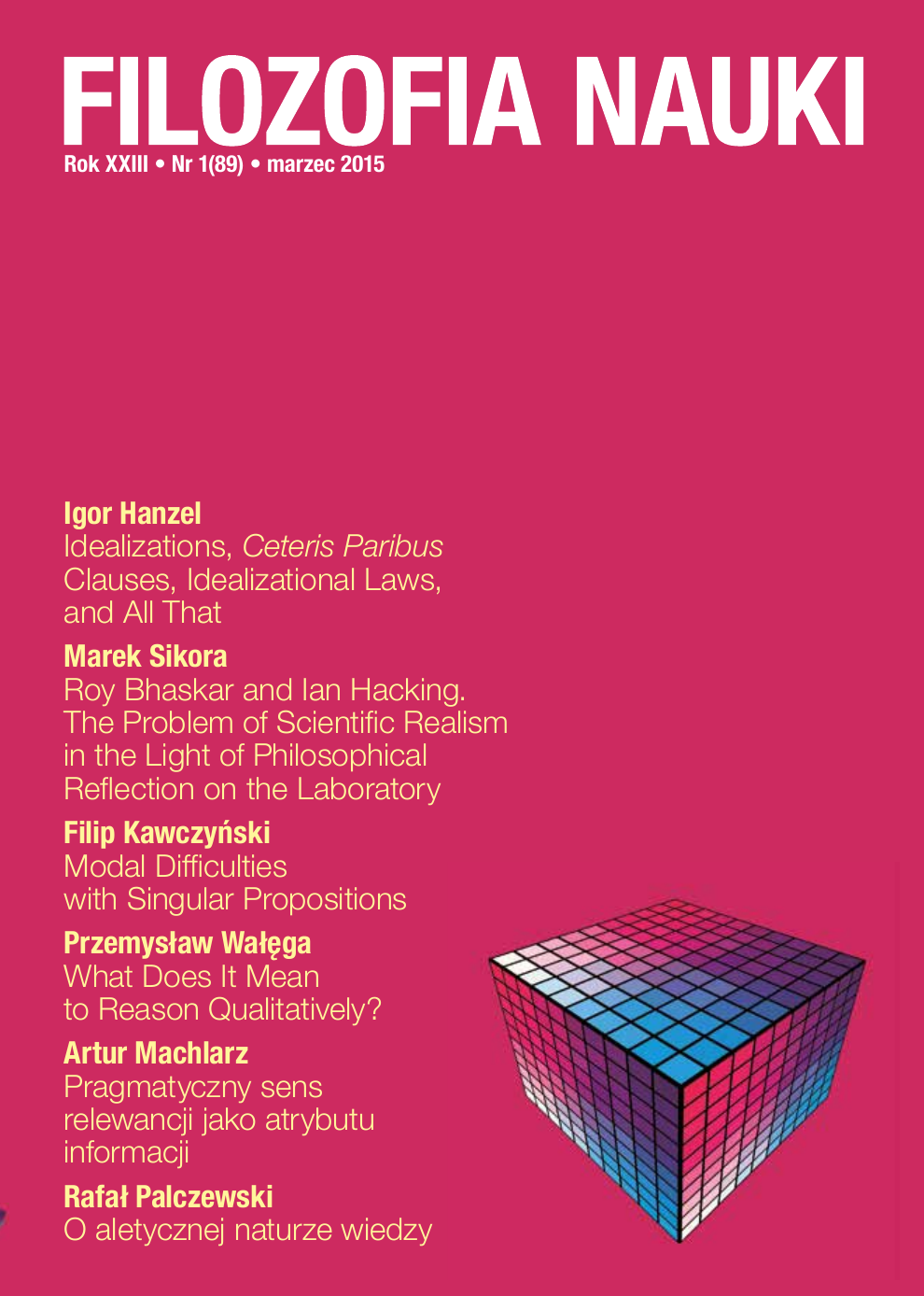Pragmatic Aspects of Relevance as an Attribute of Information
Keywords:
information, relevance, pragmatic theory of informationAbstract
The starting point for the paper is: (1) a critical reconstruction of Floridi’s ap-proach to the concept of information relevance and (2) an alternative approach, based on Weinberger’s theory of pragmatic information, which recognizes the subjective value of relevance. It is argued that two elements crucial for Floridi’s theory — the condition that relevant information has to be true and the distinction between the value of information itself and the value of information about availability of information — are unjustifiable when considered in the context of processes of decision making. According to the pragmatic theory of information, if the information is relevant, then the state which is a result of acquiring it is better — from the point of view of the agent — than the state before receiving it. For Weinberger this positive impact of relevant information is subjective, in contrast to Floridi’s account. The paper presents a new approach to estimation of relevance, which is informed by Weinberger’s pragmatic theory and is based on recognizing the difference between the initial state and the state after receiving information.Downloads
Published
2015-03-01
How to Cite
Machlarz, A. (2015). Pragmatic Aspects of Relevance as an Attribute of Information. The Philosophy of Science, 23(1), 81–97. Retrieved from https://fn.uw.edu.pl/index.php/fn/article/view/782
Issue
Section
Articles















 Filozofia Nauki/The Philosophy of Science | ISSN 1230-6894 | e-ISSN 2657-5868
Filozofia Nauki/The Philosophy of Science | ISSN 1230-6894 | e-ISSN 2657-5868